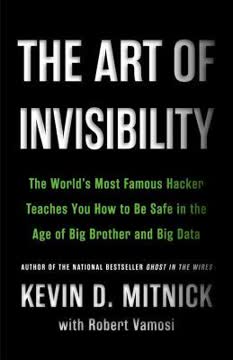Key Takeaways
1. Technology has created a hyper-connected world with unprecedented vulnerabilities
When everything is connected, everyone is vulnerable.
Exponential technological growth has transformed our world, connecting billions of devices to the Internet. While this brings tremendous benefits, it also creates new vulnerabilities:
- Insecure systems: Many connected devices lack basic security features
- Expanding attack surface: More connections mean more potential entry points for hackers
- Cascading failures: Interconnected systems can lead to widespread outages
The pace of technological change outstrips our ability to secure it. As we become more dependent on connected technologies for critical functions like power grids, transportation, and healthcare, the potential impacts of cyber attacks grow more severe.
2. Our digital footprints are being exploited by criminals, corporations, and governments
You are not Google's customer; you are its product.
Data is the new oil, and companies are racing to extract as much of it as possible from users. This massive data collection creates risks:
- Privacy violations: Personal information is routinely sold to advertisers and data brokers
- Identity theft: Data breaches expose sensitive information to criminals
- Government surveillance: Intelligence agencies tap into commercial data streams
Users often don't realize the extent of data they're sharing or how it can be used against them. "Free" services like social media platforms monetize user data in ways that aren't always transparent or ethical.
3. The "Dark Web" hosts a thriving underground economy of illegal goods and services
The Dark Net holds some of the greatest secrets the Internet has to offer, and like the back alleys and black market bazaars of any big city it is where criminals connect to conduct their illegal activities.
A parallel Internet exists beyond the reach of search engines and normal browsing. This "Dark Web" is accessed through special software like Tor and hosts marketplaces for:
- Drugs and weapons
- Stolen data and hacking tools
- Human trafficking and child exploitation
- Assassinations and other criminal services
Cryptocurrencies like Bitcoin facilitate anonymous transactions in this digital underworld. While the Dark Web has some legitimate uses for privacy, it's primarily a haven for criminal activity on a massive scale.
4. Cyber crime has evolved into sophisticated, corporation-like enterprises
Crime, Inc. is a business and a highly profitable one.
Organized cyber crime now mirrors legitimate corporations in structure and sophistication:
- C-suite leadership (CEO, CFO, CIO, etc.)
- Human resources and employee training
- Research and development of new attack methods
- Customer service for criminal clients
- Marketing and affiliate programs
This professionalization of cyber crime makes attacks more effective and profitable. Criminal enterprises can now operate at scales previously unimaginable, targeting millions of victims simultaneously.
5. New technologies like AI and robotics will amplify existing cyber threats
Moore's law works for criminals too.
Emerging technologies will create new attack vectors and enhance criminals' capabilities:
- AI-powered attacks: Automated hacking at superhuman speeds
- Robotic crime: Physical world attacks orchestrated through hacked robots/drones
- Synthetic biology: Potential for engineered bioweapons or drug production
- Quantum computing: May break current encryption methods
As these technologies become more accessible, they'll inevitably be exploited by bad actors. The potential for harm grows exponentially as cyber attacks merge with the physical world.
6. Critical infrastructure is increasingly vulnerable to cyber attacks
Our electrical grids, air traffic control networks, fire department dispatch systems, and even the elevators at work are all critically dependent on computers.
Essential systems that underpin modern society are increasingly connected and vulnerable:
- Power grids
- Water treatment facilities
- Transportation systems
- Financial networks
- Healthcare infrastructure
Attacks on these systems could have catastrophic real-world consequences. Many use outdated technology with known vulnerabilities, creating significant national security risks.
7. Protecting our digital lives requires vigilance, education, and systemic changes
There is a gathering storm before us, and all the signs of disaster are there.
Securing our digital future will require action on multiple fronts:
- Individual responsibility: Better "cyber hygiene" practices by users
- Corporate accountability: Stricter regulations on data collection and security
- Government action: Improved law enforcement capabilities and international cooperation
- Technological solutions: Development of more secure systems and encryption methods
Education is crucial to help people understand the risks and take appropriate precautions. Systemic changes are needed to realign incentives and create a more secure digital ecosystem.
Last updated:
FAQ
What's Future Crimes about?
- Exploration of Cyber Vulnerability: Future Crimes by Marc Goodman examines the interconnectedness of our digital lives and the vulnerabilities that arise from it. It highlights how technology, while beneficial, exposes individuals and societies to unprecedented risks from cybercrime and terrorism.
- Emerging Technologies and Crime: The book discusses the evolution of crime in the digital age, focusing on how criminals leverage advanced technologies like AI, robotics, and big data to commit crimes. It illustrates the shift from traditional crime to sophisticated cyber operations.
- Call to Action: Goodman urges readers to understand the implications of their digital footprints and take proactive measures to protect themselves and their communities from future threats.
Why should I read Future Crimes?
- Awareness of Risks: The book equips readers with knowledge about the potential dangers lurking in our increasingly digital world, using real-life examples to illustrate how easily personal data can be exploited.
- Understanding Technology's Dual Nature: It emphasizes that technology is a double-edged sword, offering both benefits and risks, helping readers make informed decisions about their technology use.
- Empowerment through Knowledge: Goodman aims to empower individuals to take control of their digital lives, providing insights to develop better cybersecurity practices and advocate for stronger protections.
What are the key takeaways of Future Crimes?
- Everyone is Vulnerable: The book highlights that "when everything is connected, everyone is vulnerable," stressing the importance of recognizing our digital dependencies and the risks they entail.
- Data is the New Oil: Goodman asserts that personal information holds immense value in the digital economy, underscoring the need for individuals to be aware of data collection and usage.
- Proactive Measures Needed: It advocates for proactive measures to combat cyber threats, including better education on cybersecurity and robust security practices.
What are the best quotes from Future Crimes and what do they mean?
- "When everything is connected, everyone is vulnerable.": This quote encapsulates the book's main argument about the risks associated with our interconnected digital lives, serving as a reminder of our reliance on technology.
- "Data is the new oil.": This phrase highlights the value of personal data in today's economy, suggesting that data drives the digital age, similar to how oil fueled the industrial age.
- "The more data you produce and store, the more organized crime is happy to consume.": This reflects Goodman’s view on the relationship between data proliferation and crime, warning of the opportunities for criminals to exploit information.
How does Future Crimes address the evolution of cybercrime?
- Historical Context: Goodman provides a historical overview of cybercrime, illustrating its evolution from simple hacking to complex operations involving organized crime and state-sponsored actors.
- Technological Advancements: The book discusses how advancements in technology, such as IoT and big data, have transformed criminal methods, making it essential to stay informed.
- Case Studies: Goodman presents case studies demonstrating the real-world implications of cybercrime, illustrating the seriousness of threats and the need for vigilance.
What role do data brokers play in Future Crimes?
- Data Collection and Sale: Data brokers collect vast amounts of personal information from various sources and sell it to advertisers and other entities, often without individuals' knowledge.
- Lack of Regulation: The book highlights the lack of regulation in the data broker industry, raising concerns about data security and privacy for consumers.
- Consequences of Data Leaks: Goodman warns that data collected by brokers can be hacked or misused, leading to identity theft and other crimes, emphasizing the need for better protections.
How does Future Crimes explain the concept of the "surveillance economy"?
- Definition of Surveillance Economy: Goodman describes it as a system where personal data is continuously collected, analyzed, and sold by corporations and governments.
- Impact on Privacy: The book discusses how this constant surveillance erodes personal privacy and autonomy, raising ethical concerns about consent and data ownership.
- Real-World Examples: Goodman provides examples of how companies and governments utilize surveillance for profit and control, highlighting the need for awareness of digital presence.
What is the significance of the cloud in Future Crimes?
- Centralized Data Storage: The shift to cloud computing centralizes vast amounts of data, making it an attractive target for cyber criminals.
- High-Profile Hacks: Goodman references major hacks, such as those of Target and Sony, to illustrate vulnerabilities associated with cloud storage.
- Need for Security Practices: The book advocates for organizations to adopt best practices for cloud security, including encryption and regular audits.
How does Future Crimes address the issue of privacy?
- Surveillance Society: Goodman discusses the rise of a surveillance society where personal data is constantly monitored and analyzed, often without consent.
- Regulatory Challenges: The book highlights challenges in regulating data privacy, as technology often outpaces legislation, leaving consumers vulnerable.
- Consumer Awareness: Goodman encourages readers to be proactive about their privacy, understanding the implications of the technologies they use daily.
What are the implications of the Internet of Things (IoT) discussed in Future Crimes?
- Increased Vulnerability: The IoT significantly increases the number of devices that can be hacked, leading to greater risks.
- Data Collection: IoT devices collect vast amounts of personal data, raising concerns about privacy and security.
- Need for Security Standards: Goodman calls for robust security standards for IoT devices to mitigate risks.
How does Future Crimes suggest we can combat cybercrime?
- Education and Awareness: Goodman emphasizes the importance of educating the public about cybersecurity risks and best practices.
- Public-Private Partnerships: The book advocates for stronger collaboration between government and private sectors to enhance cybersecurity measures.
- Crowdsourcing Solutions: Goodman suggests leveraging crowdsourcing to engage citizens in combating cyber threats, highlighting the potential of collective action.
What role does artificial intelligence play in the future of crime, according to Future Crimes?
- Automation of Crime: AI can be used to automate criminal activities, making them more efficient and widespread.
- AI in Cybersecurity: The book explores AI's potential to enhance cybersecurity measures, helping to detect and respond to threats more effectively.
- Ethical Considerations: Goodman raises ethical concerns about AI in both crime and security, emphasizing the need for responsible development and deployment.
Review Summary
Future Crimes offers a comprehensive look at the dark side of technology, detailing current and potential cyber threats. Readers found it eye-opening and alarming, praising Goodman's thorough research and storytelling. Many considered it a must-read, though some felt it was repetitive and overly long. The book covers a wide range of topics, from hacking and data privacy to AI and robotics. While some criticized its sensationalism, most appreciated its insights into technological vulnerabilities and practical advice for protection. Overall, reviewers found it both fascinating and terrifying.
Similar Books








Download PDF
Download EPUB
.epub digital book format is ideal for reading ebooks on phones, tablets, and e-readers.




